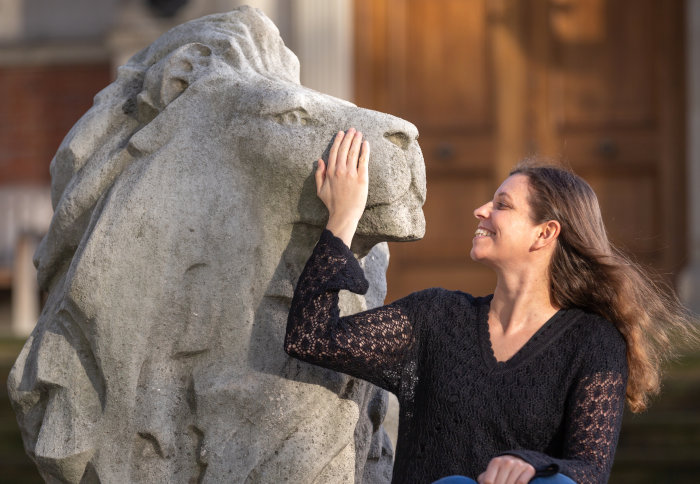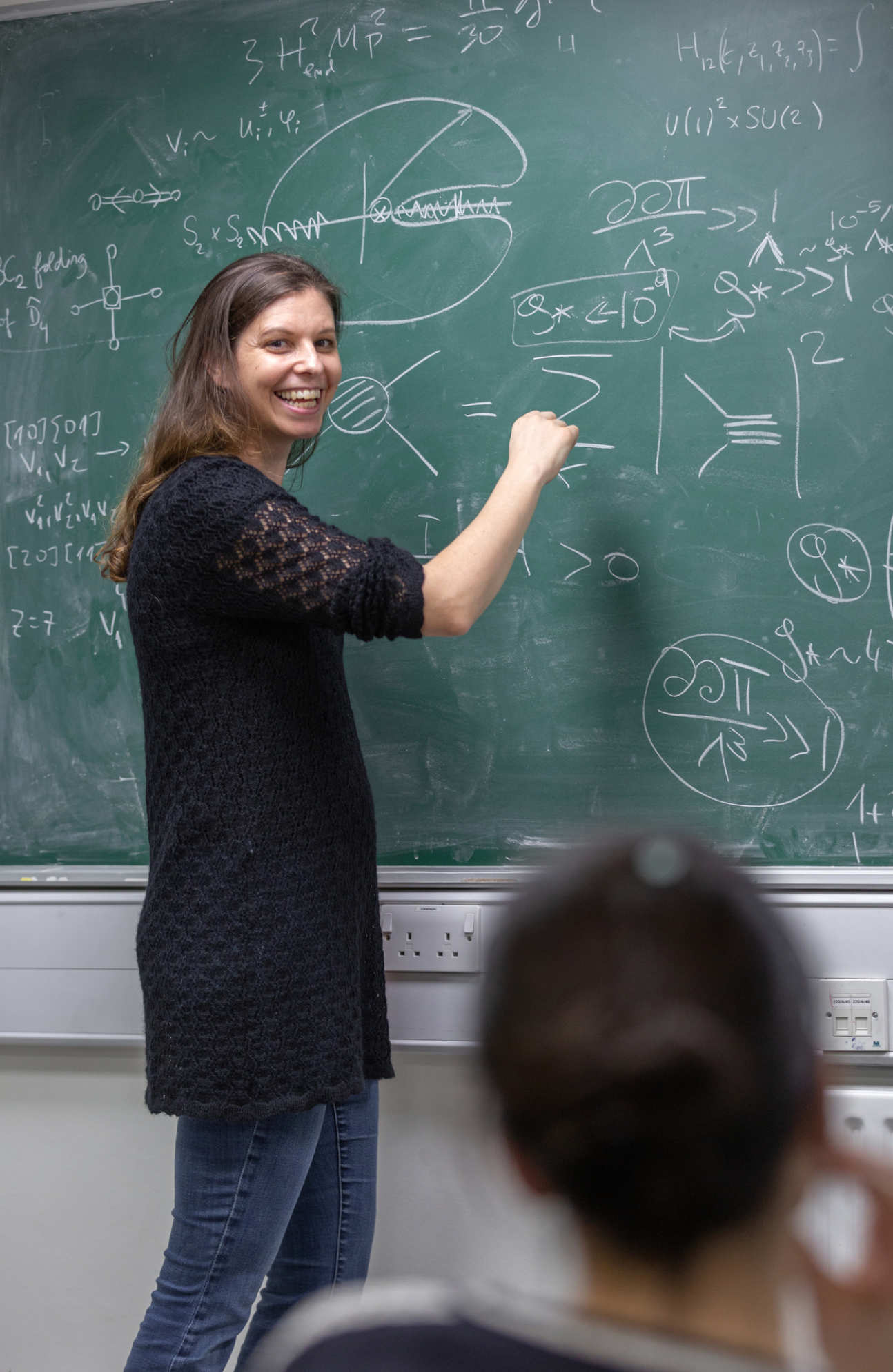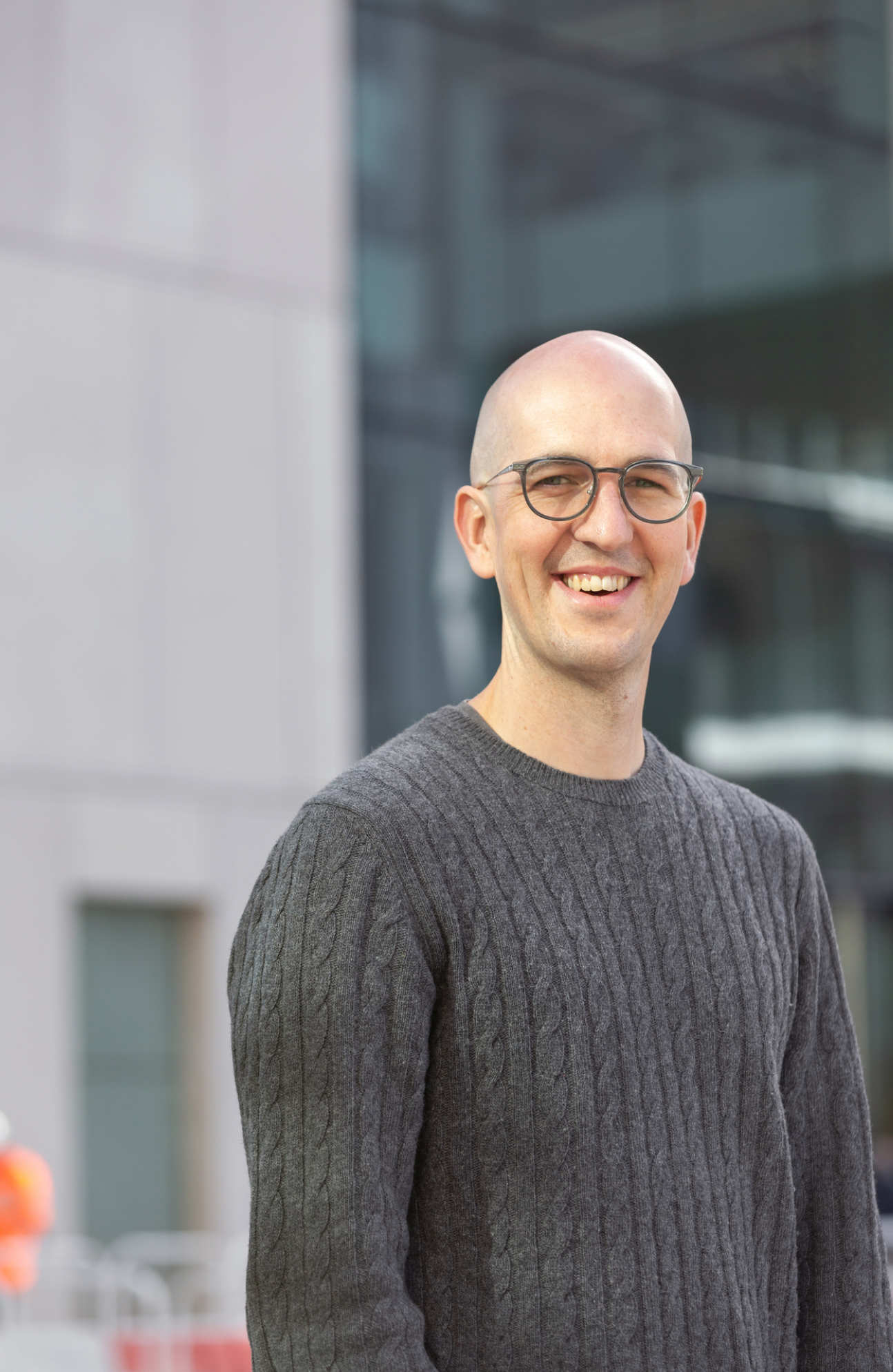Imperial physicist and chemist honoured in premier young scientist awards

Professor Claudia de Rham and Professor Matthew Fuchter receive accolades in the annual Blavatnik Awards for Young Scientists.
The Awards, conferred by the Blavatnik Family Foundation and the New York Academy of Sciences, come with the largest unrestricted prizes for young scientists.
Professor Claudia de Rham, from the Department of Physics, was announced as the winner (Laureate) in the Physical Sciences & Engineering category, receiving US$100,000 (£75,000).
Each category also has two Finalists, and Professor Matthew Fuchter was named a Finalist in the Chemistry category, receiving US$30,000 (£23,000).
Sir Leonard Blavatnik, Founder and Chairman of Access Industries and the Blavatnik Family Foundation, and member of the President’s Council of the New York Academy of Sciences, said: “The UK has cultivated much of the world’s leading scientific talent.
“We are incredibly proud to elevate these select scientists to an international stage that will enable them to be recognised globally, prepare them to become world-class leaders in their scientific fields, and propel the wheel of innovation and societal progress."
Professor Claudia de Rham – massive gravity hunter
 Professor de Rham was a Finalist in the inaugural UK Blavatnik Awards in 2018 and has bagged the top prize this year in her category.
Professor de Rham was a Finalist in the inaugural UK Blavatnik Awards in 2018 and has bagged the top prize this year in her category.
She is recognised for: “Developing an innovative mathematical framework that yields a rigorous and viable theory of massive gravity, thereby completing a decades-old quest and profoundly impacting our understanding of many fundamental problems in cosmology and particle physics.”
This theory concerns gravitons, which are hypothetical particles responsible for transmitting gravitational forces. Understanding the nature of gravitons could shed light on some open mysteries about the universe. For example, astronomers have observed that our universe is expanding at an accelerated speed, but this phenomenon cannot be explained by Einstein’s general relativity theory, which assumes that gravitons are massless.
As a cosmologist, I am truly honoured to receive this Award and would like to thank all my collaborators. Professor Claudia de Rham
The theory of massive gravity provides one possible solution to this question. It modifies general relativity by granting mass to gravitons. All earlier attempts to construct the theory of massive gravity, however, had failed as they lead to mathematical results contradictory to the observed physical world.
In 2011, de Rham and her collaborators made a breakthrough by constructing a more sophisticated mathematical framework for the theory of massive gravity, completely avoiding the problems of previous versions. This work has profound implications for the area of research now dubbed ‘beyond Einstein gravity’, which includes exploring new types of particles in the universe and connecting the theories of gravity with current and next-generation astrophysics experiments.
She said: “Cosmologists are spacetime explorers pushing the boundaries of our knowledge and uncovering new physics at the interface between particle physics, gravity, and astronomy. As a cosmologist, I am truly honoured to receive this Award and would like to thank all my collaborators.”
Professor Matthew Fuchter – molecular innovator
 Professor Fuchter is recognised for: “The synthesis and study of novel functional systems for use in a range of applications from novel electronic materials to therapeutic agents.”
Professor Fuchter is recognised for: “The synthesis and study of novel functional systems for use in a range of applications from novel electronic materials to therapeutic agents.”
He has made major advances that are rooted in the notion that understanding of molecular structure, properties, and interactions drives innovation and can be exploited to invent new approaches for a range of applications.
Even relatively subtle aspects of a molecule’s shape can be exploited. A key example is chirality, where a molecule can take the form of either of a pair of mirror image shapes that cannot be superimposed – like our right and left hands. Using one mirror image form of a molecule over the other has been exploited historically in a variety of areas, most notably in biologically active molecules like drugs, fragrances and agrochemicals.
I would like to thank all my co-workers and collaborators whose vital contributions underpin our work and hope we can continue to translate our scientific discoveries for the benefit of society. Professor Matthew Fuchter
Professor Fuchter has demonstrated that by controlling molecular chirality within materials, the functionality of the material can be radically changed, for example altering its optical and electronic properties.
He has also worked with the design of small-molecule therapeutics – drugs that interact with larger biological molecules – through ensuring their shapes are complementary. Professor Fuchter’s medicinal chemistry team has successfully used their knowledge of these interactions to develop new therapeutic strategies for a range of diseases, and, together with a team of collaborators at Imperial has progressed a first-in-class small molecule into the clinic for the treatment of cancer.
He said: “I am both delighted and humbled to have been selected as a Chemistry Finalist for the 2020 Blavatnik Awards for Young Scientists in the United Kingdom. I would like to thank all my co-workers and collaborators whose vital contributions underpin our work and hope we can continue to translate our scientific discoveries for the benefit of society.”
-
Read more about the Blavatnik Award winners.
Article text (excluding photos or graphics) © Imperial College London.
Photos and graphics subject to third party copyright used with permission or © Imperial College London.
Reporter
Hayley Dunning
Communications Division